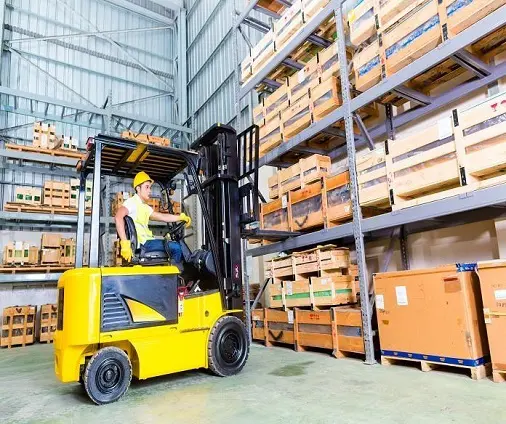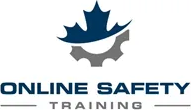Counterbalance Forklift Training in Canada

The Importance of Counterbalance Forklift Training in Canada:
In the diverse landscape of Canadian industries, the counterbalance forklift plays an indispensable role in the movement of goods, materials, and products. These versatile machines are essential for warehouse operations, construction sites, manufacturing facilities, and countless other applications. However, operating a counterbalance forklift without proper training can lead to accidents, injuries, and costly errors. In Canada, counterbalance forklift training is a critical component of workplace safety and productivity. This article delves into the importance of counterbalance forklift training in Canada, emphasizing its role in accident prevention, regulatory compliance, and skill development.
- Accident Prevention
The primary and most compelling reason for counterbalance forklift training in Canada is accident prevention. Counterbalance forklifts are powerful machines that can lift heavy loads to significant heights and move them across various terrains. Without proper training, operators may not fully grasp the risks and complexities associated with these machines, increasing the likelihood of accidents.
Counterbalance forklift training programs in Canada cover a wide range of critical safety topics, including:
- Equipment inspection: Proper inspection of the forklift before each use ensures that it is in safe working condition.
- Load handling and stability: Understanding load limits and proper load placement is essential to prevent tipping and accidents.
- Maneuvering techniques: Operating a forklift involves precise steering and control, especially in confined spaces.
- Hazard identification: Training equips operators with the ability to identify potential hazards and take proactive measures to avoid accidents.
- Safe operating procedures: Operators learn how to safely start, operate, and shut down the forklift.
- Emergency procedures: In the event of an accident or equipment malfunction, operators are trained on how to respond quickly and effectively.
By providing this knowledge and practical skills, counterbalance forklift training significantly reduces the risk of accidents, injuries, and damage to goods and property. It ensures that operators are well-prepared to handle the challenges of operating these powerful machines safely.
- Regulatory Compliance
Canada has stringent regulations and standards in place to ensure the safe operation of counterbalance forklifts. Compliance with these regulations is not optional but a legal requirement. Counterbalance forklift training is essential to ensure that operators and employers adhere to these regulations and standards.
Key regulations and standards that govern the operation of counterbalance forklifts in Canada include:
- Occupational Health and Safety (OHS) regulations: Each province and territory in Canada has its own set of OHS regulations that include specific requirements for the safe use of forklifts. Compliance with these regulations is essential to avoid legal liabilities.
- Canadian Standards Association (CSA) standards: CSA standards provide guidance on the design, construction, and safe use of forklifts. Counterbalance forklift training programs in Canada align with CSA standards to ensure that operators understand and comply with these guidelines.
- Workplace safety policies: Many Canadian workplaces have specific safety policies related to forklift operation. Counterbalance forklift training helps employees and employers understand and implement these policies effectively.
- Certification and licensing: In some provinces, forklift operators are required to obtain certification or licensing to operate forklifts legally. Counterbalance forklift training programs often lead to certification, helping operators meet these requirements.
By ensuring compliance with regulations and standards, counterbalance forklift training helps organizations avoid legal repercussions and maintain a safe working environment.
- Skill Development
Operating a counterbalance forklift requires a unique set of skills and expertise. Counterbalance forklift training in Canada goes beyond basic safety knowledge; it focuses on developing the practical skills needed to operate these machines effectively.
Training programs cover various aspects of forklift operation, including:
- Proper mounting and dismounting techniques
- Precise load handling and positioning
- Effective steering and maneuvering in tight spaces
- Efficient use of controls and levers
- Maintenance and inspection of forklift components
- Troubleshooting common issues and performing basic repairs
These skills not only enhance operator safety but also contribute to increased efficiency and productivity. Skilled forklift operators can complete tasks more quickly and accurately, reducing the risk of accidents and errors.
- Fostering a Culture of Safety
Counterbalance forklift training plays a vital role in promoting a culture of safety within organizations and among individuals. Safety should be an integral part of any workplace or community, and counterbalance forklift training contributes to instilling this mindset.
Individuals who undergo counterbalance forklift training in Canada become more aware of the risks associated with forklift operation and develop a heightened sense of responsibility. They understand that safety is not just a set of rules to follow but a collective commitment to protecting themselves and others.
Organizations that prioritize counterbalance forklift training demonstrate their commitment to the well-being of their employees and the public. This commitment can improve employee morale, reduce turnover, and enhance the organization’s reputation. It also contributes to a safer and more productive work environment, where individuals are more likely to speak up about safety concerns and take proactive measures to prevent accidents.
- Reducing Equipment Damage and Maintenance Costs
Counterbalance forklifts are valuable assets for organizations, and their proper maintenance is essential to ensure longevity and optimal performance. Counterbalance forklift safety training programs in Canada emphasize the importance of routine maintenance, including cleaning, lubrication, and inspection of forklift components.
Operators who receive training are more likely to perform regular maintenance tasks correctly, reducing the risk of equipment damage and the need for costly repairs. By understanding how to keep their forklifts in good working condition, operators can extend the life of the equipment and lower maintenance costs for both individuals and organizations.
Counterbalance forklift training in Canada is not just a legal requirement but a critical step in promoting safety, preventing accidents, and fostering a culture of responsibility. Counterbalance forklifts are powerful and versatile tools that demand respect and expertise from their operators. Through comprehensive training programs, individuals gain the knowledge, skills, and confidence needed to operate counterbalance forklifts safely and efficiently.
Counterbalance forklift safety training also ensures compliance with regulations, enhances skills and efficiency, reduces equipment damage, and lowers maintenance costs. Whether used in warehouses, construction sites, or other applications, counterbalance forklifts are essential tools in Canada, and their safe and responsible use is paramount for the well-being of individuals and the productivity of organizations.
Click here for an online telehandler forklift training course.
Click here for Government of Canada information.
Categories
- Aerial Lift
- ATV Training
- Bear Awareness
- Chainsaw Training
- Confined Space
- Defensive Driving
- Forklift Training
- Lockout Tagout
- Online Safety Training
- Overhead Crane
- Pipeline Construction Safety Training
- Propane Handling
- Safety Training Benefits
- Scissor Lift
- Skid Steer Training
- Space Awareness
- TDG
- Telehandler Forklift
- Traffic Control
- Train the Trainer course
- Training Course
- Uncategorized
- WHMIS
- Workplace Harassment and Violence Preventiont
